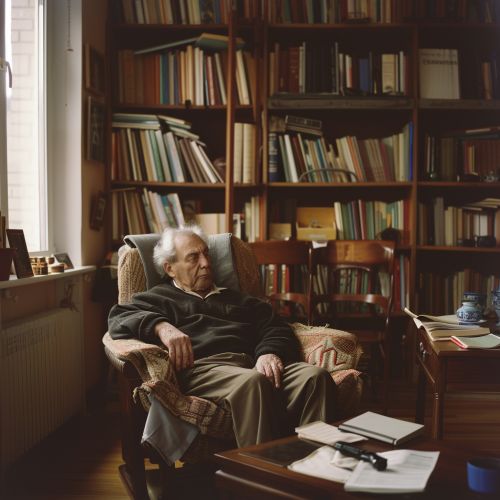Grigori Perelman
Early Life and Education
Grigori Yakovlevich Perelman was born on June 13, 1966, in Leningrad, Soviet Union (now Saint Petersburg, Russia). He exhibited exceptional mathematical talent from a young age. Perelman attended the prestigious Leningrad Secondary School #239, which specialized in mathematics and physics. His early education laid a strong foundation for his future academic pursuits.
Perelman's father, Yakov Perelman, was an electrical engineer, and his mother, Lyubov, was a mathematician. This familial background in scientific disciplines undoubtedly influenced Perelman's intellectual development. He participated in various mathematical competitions during his school years, achieving notable success. In 1982, he won a gold medal at the International Mathematical Olympiad, showcasing his prodigious abilities on an international stage.
Academic Career
University Studies
Perelman enrolled at the Leningrad State University (now Saint Petersburg State University) in 1982, where he studied in the Department of Mathematics and Mechanics. Under the mentorship of renowned mathematicians such as Aleksandr Aleksandrov and Yuri Burago, Perelman honed his skills in differential geometry and topology. He completed his undergraduate studies with distinction in 1987.
Postgraduate Research
After completing his undergraduate degree, Perelman pursued postgraduate studies at the Steklov Institute of Mathematics in Leningrad. His doctoral advisor was Aleksandr Aleksandrov, a prominent figure in the field of geometry. Perelman's Ph.D. thesis, titled "Saddle Surfaces in Euclidean Spaces," focused on Alexandrov spaces and contributed significantly to the understanding of geometric structures.
Contributions to Mathematics
Early Work
Perelman's early work primarily revolved around Riemannian geometry and geometric analysis. He made substantial contributions to the theory of Alexandrov spaces, which are generalizations of Riemannian manifolds with lower curvature bounds. His research in this area provided new insights into the structure and properties of these spaces.
The Poincaré Conjecture
The most significant achievement of Perelman's career is his proof of the Poincaré conjecture, one of the seven Millennium Prize Problems posed by the Clay Mathematics Institute. The conjecture, formulated by Henri Poincaré in 1904, posits that every simply connected, closed 3-manifold is homeomorphic to a 3-sphere.
Perelman's approach to solving the Poincaré conjecture involved the use of Ricci flow, a technique introduced by Richard S. Hamilton in the 1980s. Ricci flow is a process that deforms the metric of a manifold in a way that smooths out irregularities in its shape. Perelman introduced several innovative ideas and techniques to overcome the challenges associated with Ricci flow, including the concept of entropy and the notion of collapsing.
In a series of three groundbreaking papers published between 2002 and 2003, Perelman presented a complete proof of the Poincaré conjecture. His work not only resolved a century-old problem but also advanced the field of geometric analysis. The mathematical community widely recognized the significance of Perelman's proof, and it was verified by several experts in the field.


Recognition and Awards
Despite his monumental contributions to mathematics, Perelman has been known for his reclusive nature and reluctance to accept accolades. In 2006, the International Mathematical Union awarded him the Fields Medal, the highest honor in mathematics, for his proof of the Poincaré conjecture. However, Perelman declined the award, stating that he was not interested in recognition or monetary rewards.
In 2010, the Clay Mathematics Institute offered Perelman the $1 million Millennium Prize for solving the Poincaré conjecture. Once again, Perelman declined the prize, citing his disinterest in financial incentives and his belief that the recognition should be shared with Richard S. Hamilton for his foundational work on Ricci flow.
Later Life and Current Status
Following his groundbreaking work on the Poincaré conjecture, Perelman withdrew from the mathematical community and public life. He resigned from his position at the Steklov Institute of Mathematics and reportedly lives a secluded life in Saint Petersburg. Perelman has not published any further research since his proof of the Poincaré conjecture, and his current activities remain largely unknown.
Legacy
Grigori Perelman's proof of the Poincaré conjecture stands as one of the most significant achievements in modern mathematics. His work has had a profound impact on the fields of topology and geometric analysis, inspiring further research and advancements. Perelman's contributions have solidified his place in the history of mathematics, and his proof of the Poincaré conjecture is considered a milestone in the discipline.
